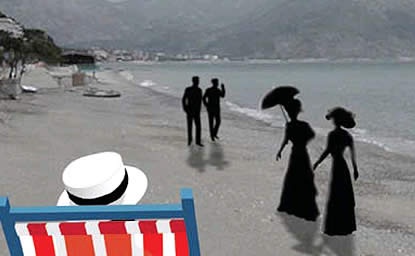Cosi fan tutte
Mayfair Theatre, 100 King Edward Street, Kensington, Dunedin
04/10/2008 - 10/10/2008
Production Details
One of the most popular and loved operas in the repertoire, Cosi fan tutte will play for four nights throughout the Festival. A story of true love, temptation and seduction, Mozart’s ‘most perfect opera’ is both a sparkling tuneful entertainment and a penetrating look at the games that lovers play.
This light hearted story of lovers and mistaken identity will be sung in a witty new English translation by John Drummond and is directed by Jaqueline Coats. Holly Mathieson will conduct the opera with the Southern Sinfonia.
Plays Sat 4, Mon 6, Wed 8, Fri 10 October.
Featuring:
Georgia Jamieson Emms as Fiordiligi
Penelope Muir as Dorabella
Marion Taylor as Despina
Matthew Landreth as Don Alfonso
Robert Tucker as Guglielmo, and
Bonaventure Allan-Moetaua as Fernando
living proof that Dunedin opera has come of age
Review by Louise Petherbridge 09th Oct 2008
Cosi fan Tutte ("As they all do", or "They’re all at it") has a telling subtitle: School for Lovers. This gem of an opera begins with a romp but ends with a sting.
Two young blades, Guglielmo (Robert Tucker) and Fernando (Bonaventure Allan Moetaua) are persuaded by their cynical friend Don Alfonso (Matthew Landreth) to test the fidelity of their loved ones, Fiordiligi (Georgia Jamieson Emms) and Dorabella (Penelope Muir).
So after a fond farewell and protestations of love and fidelity, the two men go off presumably to battle, but they quickly return disguised as Russian Cossacks. Each then woos the other’s lady. Don Alfonso waits around to manage the situation, see the fun, and collect his winnings on the bet.
Don Alfonso is ably assisted to prove his point that all women are fickle by the lady’s maid Despina (Marion Taylor), who is a dab hand at improbable disguises. She appears as a doctor and as a notary, and saves the day on both occasions. When the heroes pretend to poison themselves in despair at the ladies’ constant rejections, Despina as the doctor revives them by the skilful use of a magnet. (So folks, don’t forget to rush off and purchase one of those magna-thingee under-blankets; they obviously work!)
At first, the ladies are adamantly faithful, but gradually, as the ‘Russians’ turn on the heat, the women begin to weaken and finally succumb; Dorabella with sensuous delight, Fiordiligi with an agonising sense of pain and guilt. What begins as a charming romp with unreality, ends with the uneasy sense that human relations are often about betrayal and dismay.
Never mind – rejoice greatly. This whole production, directed by Jacqueline Coats, with the Southern Sinfonia conducted by the musical director Holly Mathieson and led by concertmaster Sydney Manowitz, is living proof that Dunedin opera has come of age.
No longer need we suffer from large, unadulterated gatherings of tenors imported at great expense, and who we suspect, though capable of raising their arms slightly in a passionate declaration, would have a seizure if asked to move their feet a bit and sing at the same time. No longer need we sit dry-mouthed and gasping while contraltos give expert impressions of the dire effects of rigor mortis. Believe me, this can still happen even at Covent Garden.
But not with this company, who can contort themselves into positions unheard of even in the Kama Sutra. And breathe and sing, and be ready in an instant to hit the right note at the right time. Brilliant! You try performing upside-down in a deck chair.
Actually though, if I have any little niggle, it is that perhaps some of this violent motion and running in and out of rooms might have been choreographed more exactly. Some of it appears dangerously improvised, and so we are reminded that we are seeing actors and not the characters.
The director has chosen to place the opera in the Edwardian period, with an excellent minimal set by Brian King. The actors can manipulate the scene changes, and this adds to the interest. The costumes by Brenda Rendall are simple and effective, with good clean lines to match the style of the set, but more elaborate when necessary.
The lighting design by John Collier is subtly varied to suit the changing moods, notably providing the more serious atmosphere for Fiordiligi’s sorrowful aria. How strange that a transition from comic antics to serious suffering can be so quick and yet, in Jamieson Emms’ performance, so moving.
John Drummond has presented us with this new libretto in English, which has his usual sure hand and sense of humour behind it, as well as his supreme knowledge of Mozart – so the beauty of this great master’s music isn’t wrenched apart by the words accompanying it. Even the knowledgeable will not be disappointed.
_______________________________
For more production details, click on the title at the top of this review. Go to Home page to see other Reviews, recent Comments and Forum postings (under Chat Back), and News.
Copyright © in the review belongs to the reviewer





Comments